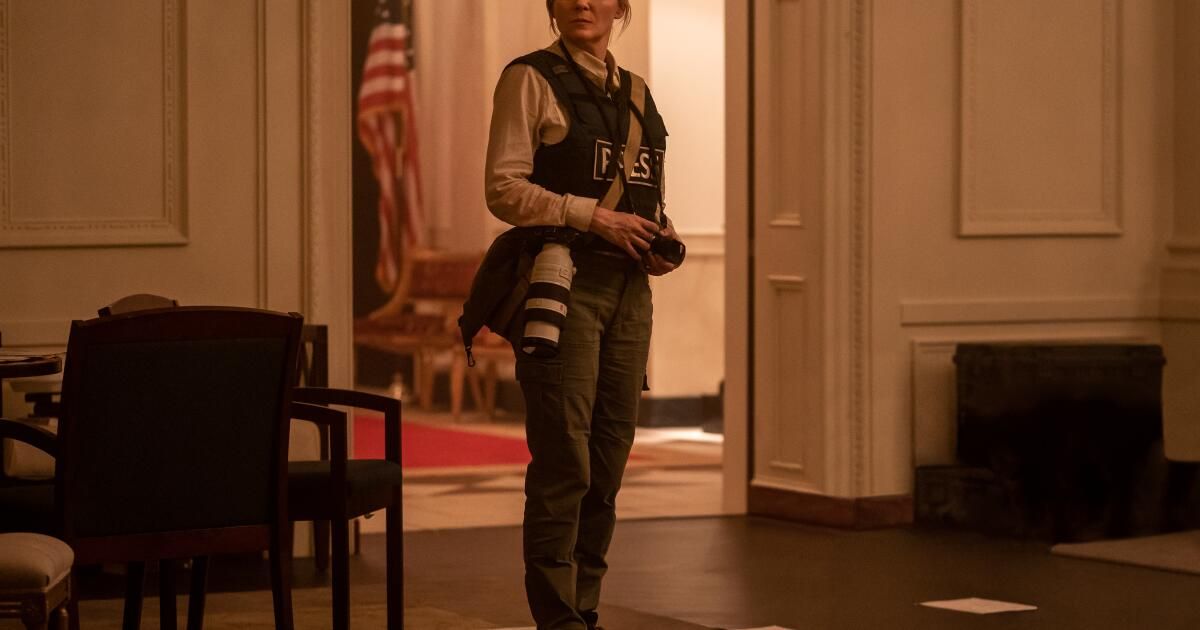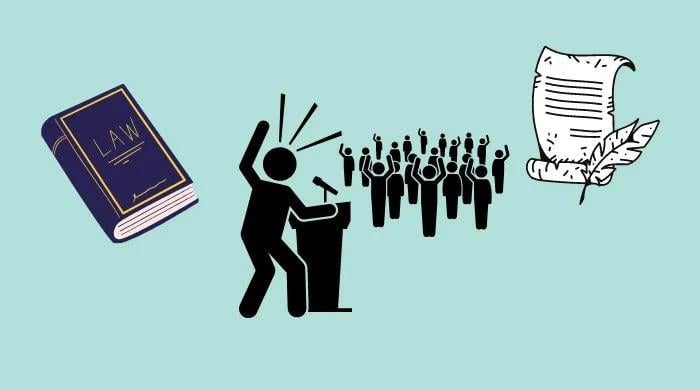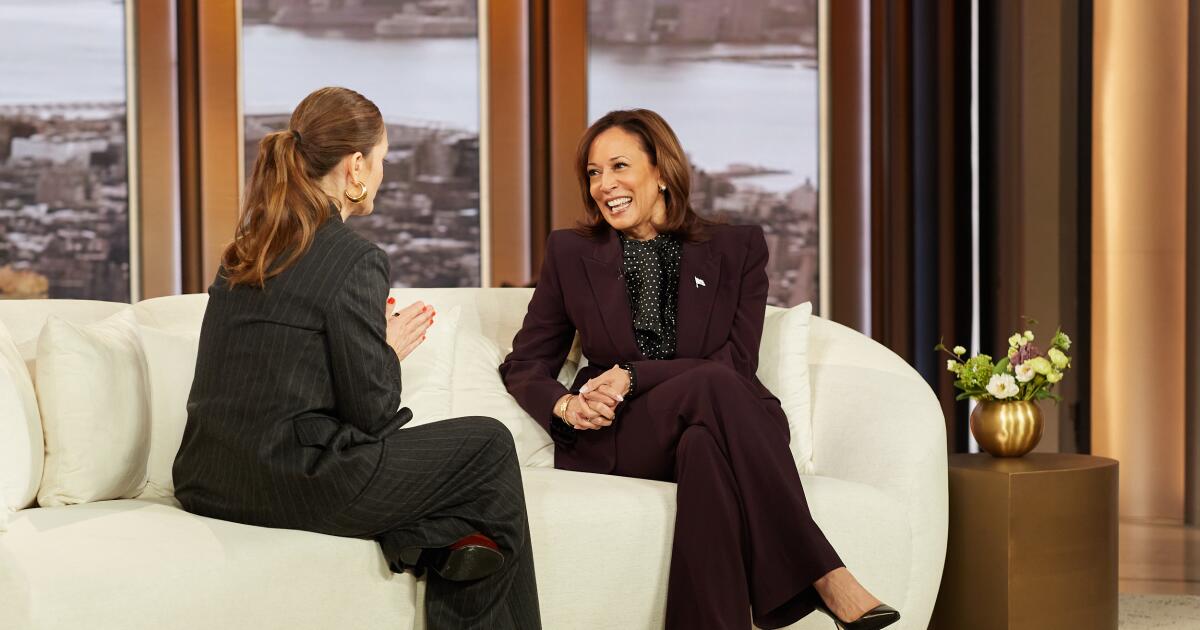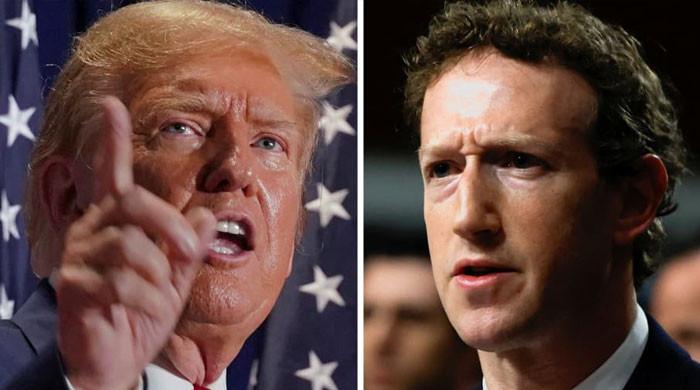Director Alex Garland wants to prove that you can make a movie about a modern American civil war without getting political. And he wants to do it in an election year.
The question is why?
His new film “Civil War,” which opened Friday, follows an unlikely group of journalists on their way from New York to Washington, D.C., as the rebel “Western Forces,” formed from California and Texas, approach the capital. Two of those journalists, Lee (Kirsten Dunst), a legendary conflict photographer, and Joel (Wagner Moura), a writer, hope to get the final interview and image of the sitting president of the United States (Nick Offerman) when they arrive. before the commander-in-chief is dragged from office and killed.
The battle lines force the group to take a circuitous route, along which they encounter the terrible, often random violence that has gripped the country in the midst of internal conflict.
It's a powerful film, which Garland said he made to underscore the importance of journalism: to remind us that much of what we know about the world is the direct result of journalists telling us and showing us what's happening at any given moment. Even if their lives and/or mental health are at stake.
This is an admirable and important goal, particularly in our historical moment. But “Western forces”? Now what?
As many noted from the moment the “Civil War” trailer dropped, it's hard to get invested in the problems of four little people when you're busy trying to imagine what set of circumstances (beyond, say, an alien invasion) would forge an alliance. between California and Texas, and precipitate a second separatist faction identified as “the Florida Alliance.”
Especially one that puts these states at odds with the president and, presumably, what's left of the US military.
I guess the people fighting on the president's side are what's left of the military; It's not exactly clear.
Much is unclear in “Civil War.” This is intentional. Garland is not interested in exploring why Western forces united to attack the White House beyond alluding to the social currents that might make a modern civil war possible: racism, nationalism, isolationism, apathy.
But social currents do not start a war; organized and opposition armed forces do it. We never learn the cause of the conflict, the president's ideology, or any of his policies beyond his reliance on the mechanisms of authoritarianism: he killed journalists, bombed American citizens, disbanded the FBI, and, since he is serving his third term, probably suspended the Constitution.
We also don't find out what the Western Forces and the Florida Alliance hope to achieve by overthrowing him; We assume they are fighting for democracy, but that could simply be wishful thinking.
Instead, the film focuses on the determined nature of the four main characters: the formidable Lee; his young, enthusiastic and initially unwanted acolyte, Jessie (Cailee Spaeny); Joel, addicted to emotions; and Sammy (Stephen McKinley Henderson), the elderly correspondent who has seen it all.
They are a compelling band, expertly played and united by the belief that their job is not to judge what they find, but to record it for the enlightenment of others.
A scene from “Civil War”.
(A24)
Their “objectivity” is so complete that they are apparently uninterested in context or meaning, i.e. the obviously catastrophic series of events leading up to this moment. There is little discussion about what Joel wants to ask the president upon meeting him or what purpose such an interview would serve beyond being the last. (To be fair, things have gotten to the point where no news outlet seems to care about scoops or page views; Lee and Joel are simply hoping to document the story.)
Despite spending hours in the car watching one apocalyptic scene after another, none of our heroes feel moved to consider moments when all this could have been avoided or to contemplate the nation's future: Do the Western Forces have a plan beyond of the impeachment of the president? Is there an acceptable vice president or speaker of the House waiting in the wings? Does Congress even exist? Who leads the Western forces?
And how can Lee and Jessie's families, not to mention a shop assistant in a town the team passes through on their trip, keep pretending that “none of this is happening”?
“Civil War” is essentially a road movie. Its tone is not so much apolitical (Garland is clearly against the war) as post-political. When the group finds themselves in the middle of a shootout in a Christmas town, they ask one of the soldiers they find there, one dressed in camouflage and with brightly dyed hair, what's going on.
Someone is shooting at us, he responds. And that's that.
The film attempts to keep the audience in the bubble of the characters' road trip: despite being on a journalistic mission, they are apparently too exhausted and overwhelmed to think about anything other than the next set of potential dangers. However, as one gruesome vision follows another, it seems irresponsible not to wonder, and continue to wonder, what the heck exactly happened.
And why doesn't anyone talk about it?
Very quickly, Garland's refusal to explain comes to seem less like an artistic choice than a reckless evasion, much as Nikki Haley initially refused to identify slavery as the cause of the actual Civil War. Particularly given how many images in the film evoke recent events, including the January 6, 2021 attack on the Capitol.
Currents of fascism, right and left, existed in the United States long before the rise of MAGA Nation. But in the wake of January 6, and with Trump's violent rhetoric once again on full display as he campaigns to return to the White House, it's impossible not to see “Civil War” as a cinematic vision of what could happen if Trump triumphs.
In which case it's worth noting that defenders of Trump's authoritarian tendencies have a clear set of ideologies. (The film's most terrifying scene, an echo of the celebration of “real Americans” so popular among right-wing Republicans, is presented as a standalone act, possibly disconnected from what has been happening in the corridors of power or in the front lines. In real life, the “us versus them” hostility of white supremacy has an identifiable political home).
Forcing the very real political divisions that plague this nation into vague subtext does not even serve the supposed pro-journalism nature of the “Civil War.”
In attempting to keep his film “above” the current political fray, Garland approaches the two sides that too many journalists are expected (or have chosen) to embrace in an attempt to demonstrate their lack of bias. But the arbitrary demand for “balance” should never be confused with objectivity, which requires, among many qualities, an understanding that not all things are equal in importance, relevance, or, if it comes down to it, blame.
The fact that in many ways we are still fighting the real Civil War, including recent conflicts over how slavery, the Confederacy, and the war itself should be portrayed in classrooms, history books, and civic life, demonstrates how important It is understanding how events unfolded. Ideologies and people caused that cataclysm, or any cataclysm. By suggesting instead that anything (or nothing) could lead to the collapse of a nation, the destruction of its most iconic monuments, and the forcible removal of the president, “Civil War” does an injustice to its audience and to the work of the very people you hope to honor.
Nor is ignorance the same as objectivity.












